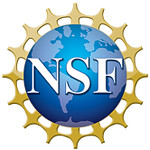 An NSF-funded program. The US National Science Foundation (NSF) created the International Research Experiences for Students (IRES) program in order to help US students in science and engineering become engaged globally, and to help them gain the tools and contacts to perform internationally-recognized research.
An NSF-funded program. The US National Science Foundation (NSF) created the International Research Experiences for Students (IRES) program in order to help US students in science and engineering become engaged globally, and to help them gain the tools and contacts to perform internationally-recognized research.
The “US-German research on HCI in ubicomp” is an NSF-funded IRES program, which is collaboratively managed by Andrew Kun of the University of New Hampshire, and Orit Shaer of Wellesley College. The program funds students to perform summer research at one of two research labs in Germany. One lab is the Human-Centered Ubiquitous Media Lab of Professor Albrecht Schmidt of the Ludwig Maximilian University of Munich. The other is the Media Informatics and Multimedia Systems Group of Professor Susanne Boll at the University of Oldenburg in Germany.
The overarching theme: HCI in ubicomp. The focus of the program is on developing human-computer interaction techniques for ubiquitous computing, or ubicomp. Ubicomp is a multidisciplinary field of study that explores networked computing devices that are embedded in everyday objects. During the spring of 2019 we will identify specific research topics for each student based on their interests and strengths, and the ongoing work at our hosts’ labs.
Example application areas. Examples of specific topics that students will explore include the following domains of ubicomp:
-
- Transforming automated vehicles to places of productivity and play. We will explore user interfaces for highly automated vehicles, those that can take over all control of the vehicle for extended periods of time, and will signal well in advance when the driver needs to resume control.
- Guiding attention to ubicomp user interfaces on ship bridges. In our work with automated vehicles we are not concerned with the driver’s attention being on the road, because the driver effectively becomes a passenger. In contrast, in our work with interfaces for ship bridges we will evaluate how to design interfaces that keep the human operator’s attention on the relevant interfaces and on the outside world, such that the operator can safely navigate the vessel.
- Physiological sensing. Physiological data, such as heart rate, skin conductance, and pupil diameter, can tell us a great deal about the user, such as changes in their cognitive load, and more generally their level of arousal. We will explore the use of physiological sensing in evaluating user interfaces, as well as in creating interfaces that can react to changes in arousal or cognitive load.
- AI for supporting learning. We will explore how to apply AI methods to improve learning outcomes for students of all abilities.
- AR/VR and automation. Automated systems, from vehicles, to industrial machines, will plan an ever-increasing role in our lives. We will explore how augmented reality (AR) and virtual reality (VR) can support user interfaces to automation.
- Design of novel interfaces for ubicomp environments. With the expansion of ubicomp technologies, there is a pressing need to connect these technologies to us, the human users. Here is a list of possible topics that students will explore in Oldenburg and Munich.
- How can we amplify human capabilities with the use of ubiquitous sensors and actuators?
- How can we create assistive technologies in ubicomp environments?
- How can we leverage ubicomp technologies for supporting people’s navigation needs, from pedestrians, to drivers?
- How can we support privacy and data security in a world where information is generated in myriad locations, and possibly recorded without the knowledge of the people who are affected.
Program dates. UNH and Wellesley received NSF funding for the IRES program for three years, from 2017 to 2019. In 2019 the program dates are expected to be June 1 through July 31.
For more information, check out our IEEE Pervasive Computing article on this program, and click on the links below:
Research and cultural environment